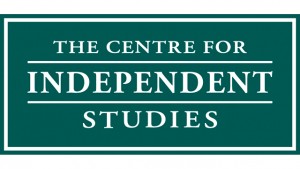Home » Commentary » Media Release » Claims of foregone tax revenue should be treated sceptically
 Treasury’s annual Tax Expenditures Statement has given rise to the usual claims that vast amounts of potential tax revenue are being foregone, but such claims should be treated sceptically, the Centre for Independent Studies (CIS) said.
Treasury’s annual Tax Expenditures Statement has given rise to the usual claims that vast amounts of potential tax revenue are being foregone, but such claims should be treated sceptically, the Centre for Independent Studies (CIS) said.
“Treasury has always been at pains to emphasise the shortcomings of tax expenditure estimates,” CIS Senior Fellow Robert Carling said.
“For example, estimates of revenue foregone are not a guide to how much revenue would be gained if the tax expenditure were abolished. Identifying a tax expenditure does not mean the policy giving rise to it should be changed, as there may be a sound policy reason for it.
“Individual tax expenditures should not be aggregated. And many of the estimates are only of low or medium reliability.
“However, these warnings are routinely ignored by many users who are on a mission to raise more tax revenue.”
Mr Carling said the largest tax expenditures arise from the treatment of savings, such as superannuation and owner-occupied housing.
“However, the benchmark for these large estimates is taxation of income from savings at full marginal rates, which is inappropriate because savings would be hit with substantial overtaxation,” he said.
“This is how the tax expenditure statement can assert that the government is foregoing revenue of $61.5 billion by not taxing capital gains on sales of owner-occupied housing. It is also why the tax expenditures for superannuation appear so large, even after the recent changes.
“It is welcome, therefore, that Treasury has undertaken to explore tax expenditure estimates for savings income based on an expenditure tax benchmark, where income from savings is not taxed. Tax expenditures measured this way would be very much lower.
“The tax expenditures statement can be useful if handled with care, but is does not support claims that there are vast amounts of low-hanging potential revenue ready to be picked,” Mr Carling said.
Robert Carling is a Senior Fellow in the Econonomics Program at the Centre for Independent Studies and author of the CIS research reports Taming the Monster: Reforming Personal Income Tax and Right or Rort? Dissecting Australia’s Tax Concessions.


Claims of foregone tax revenue should be treated sceptically